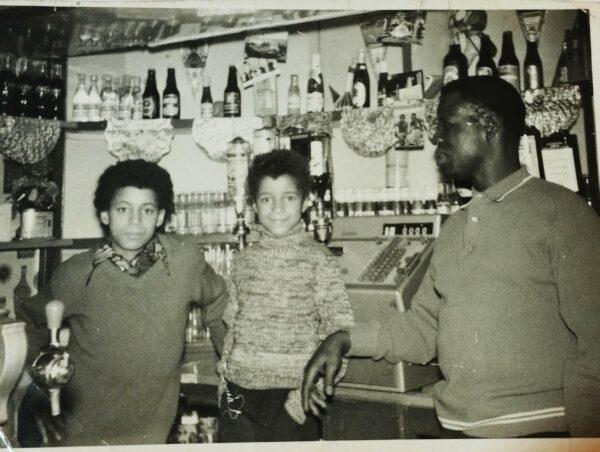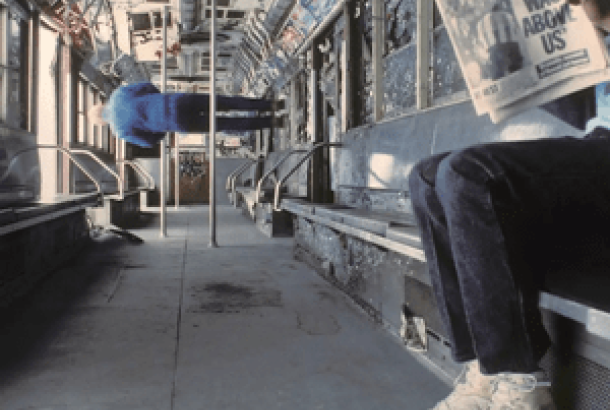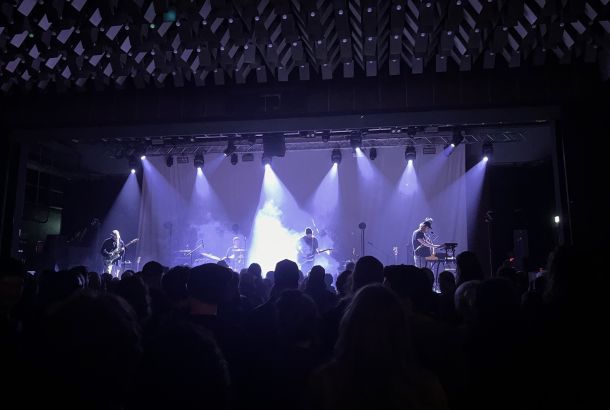Phil Magbotiwan: Honouring the face behind The Reno

Seeking shelter from the muggy Manchester weather, I sit opposite Lisa Ayegun in Coffee Nubia on Princess Road. Coincidently, we’re located near the site in which The Reno used to sit: the infamous Moss Side club set up by Lisa’s father Phil Magbotiwan. Despite the legacy The Reno has left locally, it has somewhat remained a hidden gem amidst Manchester’s history. Even amongst the coverage the club has garnered, Phil Magbotiwan’s name often goes unmentioned. But, as Lisa words it best; “It wasn’t just a club, it was the person that made it.”
After moving from Nigeria to Manchester at 13, Lisa tells me of Phil’s job as a garage apprentice. “He wouldn’t take a wage for two and a half, nearly three years,” she explains, “just keep it, keep it. Then he took it and bought a house on Denmark Road […] not one black man owned his own house in the area in those days […] I’m pretty sure, because of his nationality, one of his white friends had to put the house in his name.”
With 1950s Manchester evidently rife with racial tensions, setting up The Reno wasn’t as simple as buying a venue and opening a club. Prohibited from obtaining a liquor licence, Phil first used The Reno as a salvation for African seamen unable to get beds for the night. “There was no drinking,” Lisa tells me, “Just a metal urn with tea and John Player’s cigarettes, so the seamen could wake up, have a cig, have a brew, and then go.”
When the liquor licence was finally obtained, Phil was met with more limitations. Lisa tells me of two corrupt police officers who would be paid off to abdicate from targeting The Reno: “In them days everything closed at 2am. How did he get that? He paid. He paid regular. I’d be at home; the door would knock. They’d always have suits on […] and then he’d go into the box room in our house, unlock it. There was a set of draws. He’d go in. Open it. Close it. Come straight back out, go down, they would leave.”
Whilst this sort of policing was unfamiliar to the predominantly white nightlife that overshadowed central Manchester, it was not uncommon for Moss Side’s shebeens and nightclubs to be raided and shut down early. This was alongside abundant allegations of racialised police brutality against young black men, which would eventually lead to the 1981 Moss Side riots. With Phil investing his time into conserving black and mixed-race spaces in Moss Side, it is no wonder that The Reno was and is still so esteemed in the area.
Above The Reno was The Nile, another infamous Moss Side club. Unlike The Reno which played strictly, The Nile focused on reggae music. “Totally opposite genres of music,” Lisa explains, “The Reno was full of more people with afros, suits, and dancing. The Nile was full of people with dreadlocks, just wanting to whine and slow dance all night.” Although the music culture of The Reno was so significant to the club’s attendees, I am surprised to hear that Phil’s own music taste was unlike the records that filled the club itself. “My dad only liked Nigerian music,” Lisa says, “He knew that people knew what they wanted. When I worked there, they played full soul.”
Indeed, to hear that Lisa worked at The Reno is no surprise. She talks with enthusiasm that sparks intense imagery which accompanies each anecdote. “I got out of school. First, my dad tried to take me to Africa. He took me to Nigeria and for six weeks, I was crying my eyes out. Me and my brother came home after six weeks; we didn’t like it. As soon as I’d come back, he’d said “You come to work now”. I remember him making me learn to drive in a van on the way to work. He had me driving at 16. I worked there six days a week. Monday closed, late night Tuesday, Wednesday, Thursday, Friday, Saturday. On a Sunday afternoon, the older ones would play card games and dominoes all day.” It wasn’t just Lisa though. The Reno became a family venture, and whether it was Lisa and her sister behind the bar or her brother spinning the decks, it seems the whole family played their part in upholding the nightclub.

Credit: Lisa Ayegun
As hotspots do, the reputation of The Reno meant visitors spanned a wide spectrum. Yet no one could have anticipated it would reach as far as Muhammad Ali. Lisa tells me of the renowned boxer’s unprecedented visit to The Reno following Phil attending a fight in Montreal. “He got a good seat in the front row afterwards and just started talking. [He] told him that he was from Manchester, and he had a club. Muhammad said one day I’ll come and find you and I’ll visit the club.” And sure enough, one day into The Reno walks Muhammad Ali, gifting Phil with a golden boxing glove. “I used to play with it [the gold glove],” Lisa says, “and I’d say, “Can I have it?” and my dad said, “Are you crazy? That’s my best gift in the world.””
As we chat, people come and go through the door of the cafe, each greeting Lisa and vice versa. She credits this to her dad: “Everyone loved him. Everyone knew him. To this day, you see these men who say hi to me? I don’t know half of them, but they know my dad. And I love that everyone knew him and had pure respect for that guy.” Lisa goes on to recall insisting to her father that he was a successful man: working for himself and providing for his family. Yet Phil protested this, explaining, “I agree I am successful. But not for that reason. To me, darling, a successful man is a man who does exactly what he says he’s gonna do.”
Lisa proceeded to talk of the clothes she would ask for as a teenager, to which Phil would respond, “In my country darling, I have one T-shirt. Until this t-shirt falls off me, every thread gone, I don’t get a new one.” She continues, “I suppose it’s just the simplicity. He’d eat the same food every day, which would be garri and red African soup. He’d have to have a big handkerchief at the side because it was so hot.”
Each story is a testament to Phil’s character. Whether it be his stoicism or his humility, Lisa reminds me of the significance of his mentality: “You’d think after years of being spat at and abused; he would be angry. And he’d say, “No, because I left my mother at 13 in Nigeria, and I promised her I’d come to this country and make it work here.”” She tells me of Phil’s early experiences in Manchester. After being denied service in a pub owned by a white man, Phil was told to drink out of a barrel full of people’s dead ends of pints instead.
Years later, Lisa recalls the same pub owner entered The Reno. “He came in and asked for a red stripe. My dad said, “You don’t remember me”, and he [the pub owner] responded, “No I’ve never met you in my life mate.” “My dad told him what he did, he said, “This is what you called me, I’ve never forgot.”” Yet, instead of turning the pub owner away as he had done to Phil, he forgave him. Lisa tells me that she struggled to understand his response, as many of us would: “I know someone saying that would’ve hurt me and I would’ve taken satisfaction in thinking, yeh now leave.” Instead, Phil would remind her: “This is just a human journey, you’re on a path, don’t allow any distractions to take you off that path. What do we achieve by doing that same action?”
It’s remarkable to give such a forgiving response to someone who had shown such prejudice, and most certainly is not something that comes easily to anyone. But Lisa repeats Phil’s sentiment: “My dad spoke the secret. The secret now is the same as all of them years ago. Think about what makes you feel good. It’s like what Buddha says, everything that someone offers you is a gift, it’s up to you whether you take it.”
I hug Lisa goodbye and leave Coffee Nubia, speechless at the anecdotes I have had the privilege of hearing. Whilst it’s hard to comprehend the presence of a man you’ve never met, Lisa’s authenticity when talking of Phil makes it easy. A humble man full of wisdom who poured his energy into his community, and thus left a lifelong legacy: a man who should be honoured.
You can learn more about the Moss Side Riots here.







